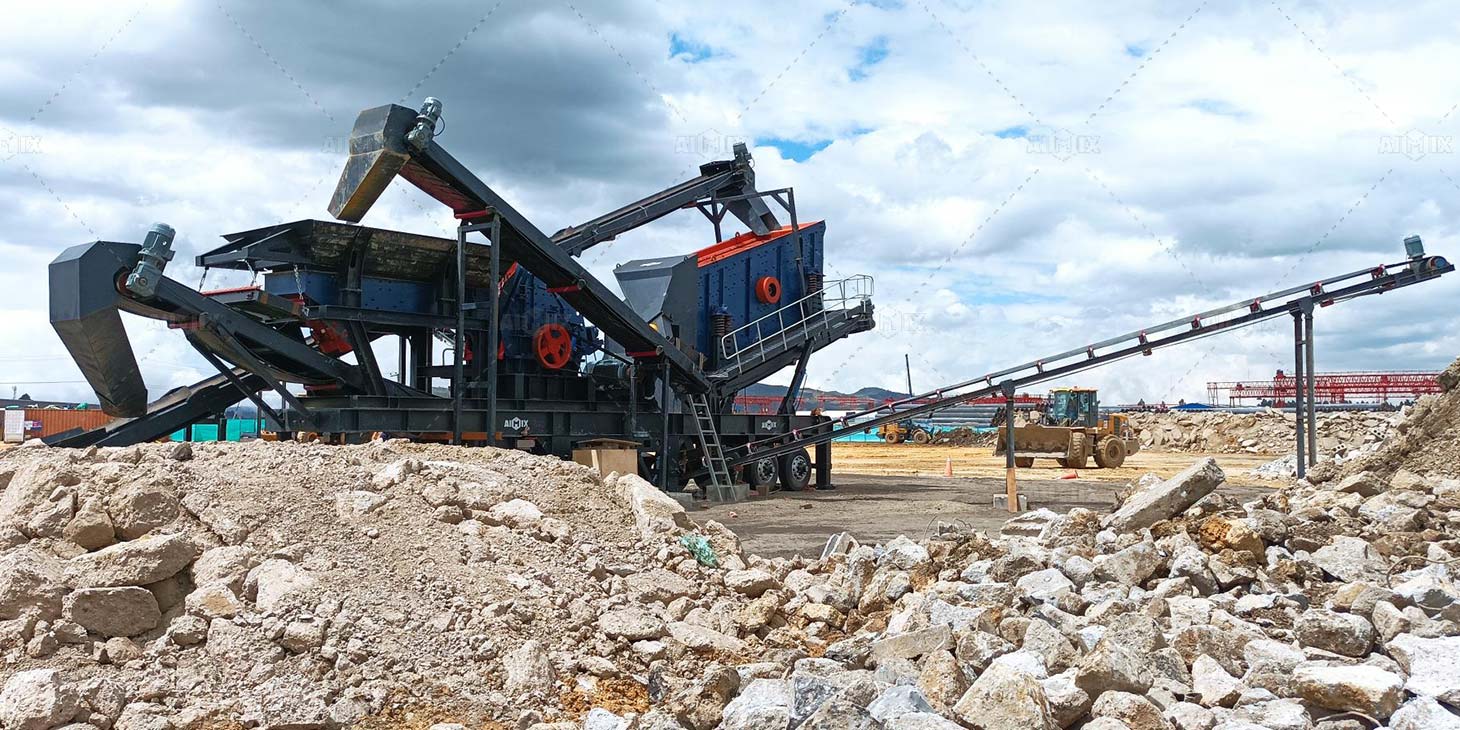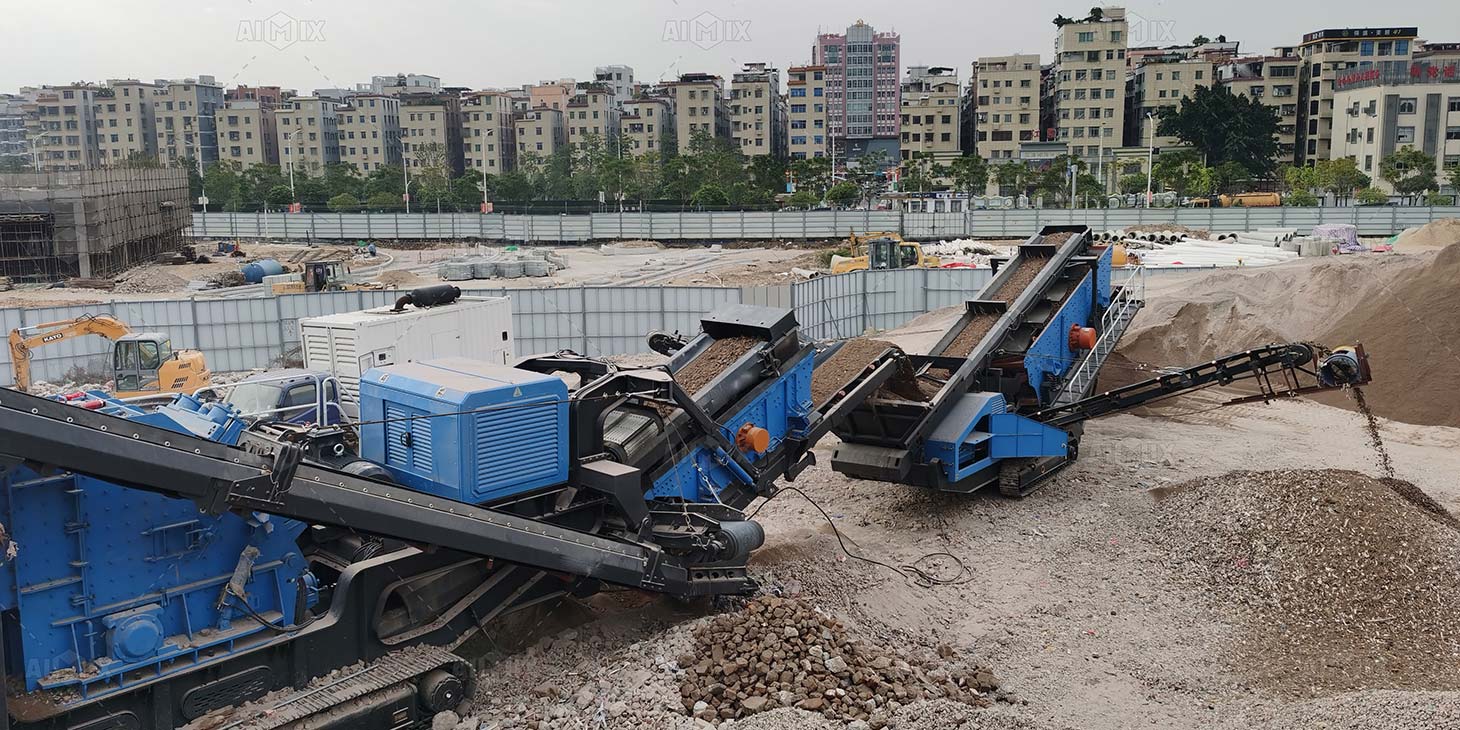The construction industry faces a pressing environmental challenge: what to do with the millions of tons of concrete waste generated annually from demolition and renovation projects. Traditional disposal methods in landfills are becoming increasingly unsustainable, both ecologically and economically. Mobile impact crusher is emerging as the vanguard solution to this challenge, transforming concrete rubble into valuable recycled aggregates right at the demolition site. These agile machines represent more than just equipment—they embody a paradigm shift toward circular construction economies where waste becomes resource.
What sets mobile impact crushers apart in the sustainability equation is their unique combination of portability and processing power. Unlike stationary recycling plants that require material transportation, these self-contained units bring the recycling capability directly to the source of waste generation. This eliminates the carbon footprint of trucking debris across cities while simultaneously producing high-quality recycled concrete aggregate (RCA) that can immediately re-enter the construction cycle. In urban environments where space is limited and environmental regulations stringent, this on-site processing capability is revolutionizing how the industry approaches concrete waste.
Environmental Benefits of On-Site Concrete Recycling
Dramatic Reduction in Transportation Emissions
Mobile impact crushers eliminate the need for long-distance hauling of demolition waste, cutting associated greenhouse gas emissions by 60-80% compared to traditional disposal methods. By processing material where it falls, these machines prevent the unnecessary movement of heavy loads across urban areas, reducing traffic congestion and diesel particulate pollution in populated zones.
Landfill Diversion at Scale
A single mobile crusher can repurpose thousands of tons of concrete annually that would otherwise occupy precious landfill space. Advanced models achieve 95-98% material recovery rates, ensuring nearly all demolished concrete gets converted into usable product rather than becoming environmental burden.

Technical Superiority of Impact Crushing Technology
Producing High-Quality Recycled Aggregates
The impact crushing mechanism delivers cubical particle shapes superior to those from jaw crushers, making the output ideal for new concrete production. Modern mobile crushing plant incorporates multi-stage crushing and precise screening to produce RCA that meets strict quality standards for structural applications.
Adaptability to Variable Feed Materials
Intelligent rotor systems automatically adjust to different concrete compositions and reinforcement levels, maintaining consistent output quality whether processing sidewalk slabs or high-strength structural elements. Some models feature real-time adjustment of crushing parameters based on continuous feed analysis.
Economic Advantages for Construction Firms
Cost Savings from Material Recovery
Producing recycled aggregate on-site provides immediate value capture, reducing the need to purchase virgin materials. Contractors report 30-50% material cost savings on projects utilizing crusher-produced RCA for sub-base or drainage layers.
Regulatory Compliance and Incentives
Many municipalities now mandate minimum recycling rates for construction debris. Mobile concrete crushers help firms exceed these requirements while qualifying for green building incentives and tax advantages associated with sustainable construction practices.

Operational Flexibility in Urban Environments
Compact Footprint for Constrained Sites
Today's mobile impact crushers feature zero-emission electric drives and noise-reduction technologies that permit operation in sensitive urban areas where diesel equipment would be prohibited. Their quick setup and teardown allows recycling operations to occur during off-peak hours if needed.
Integrated Material Handling Systems
Advanced models combine crushing with onboard screening and stockpiling, creating multiple aggregate fractions simultaneously. This all-in-one processing eliminates the need for additional material handling equipment on crowded job sites.
The rise of mobile impact crushers signals a fundamental change in how the construction industry values its byproducts. No longer just waste management tools, these machines are becoming profit centers that transform demolition liabilities into construction assets. As environmental regulations tighten and sustainable construction practices become the norm rather than the exception, mobile crushing technology will undoubtedly play an increasingly central role in building the green cities of tomorrow—literally from the rubble of yesterday.